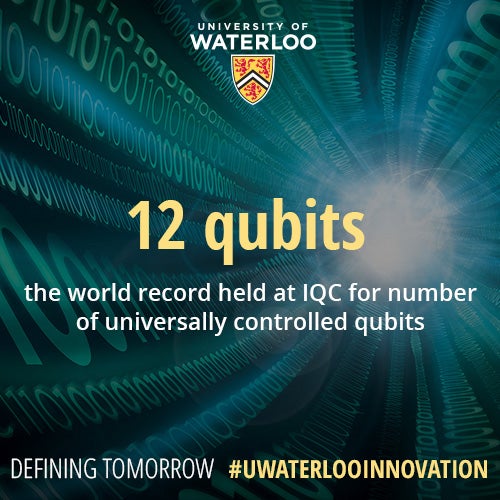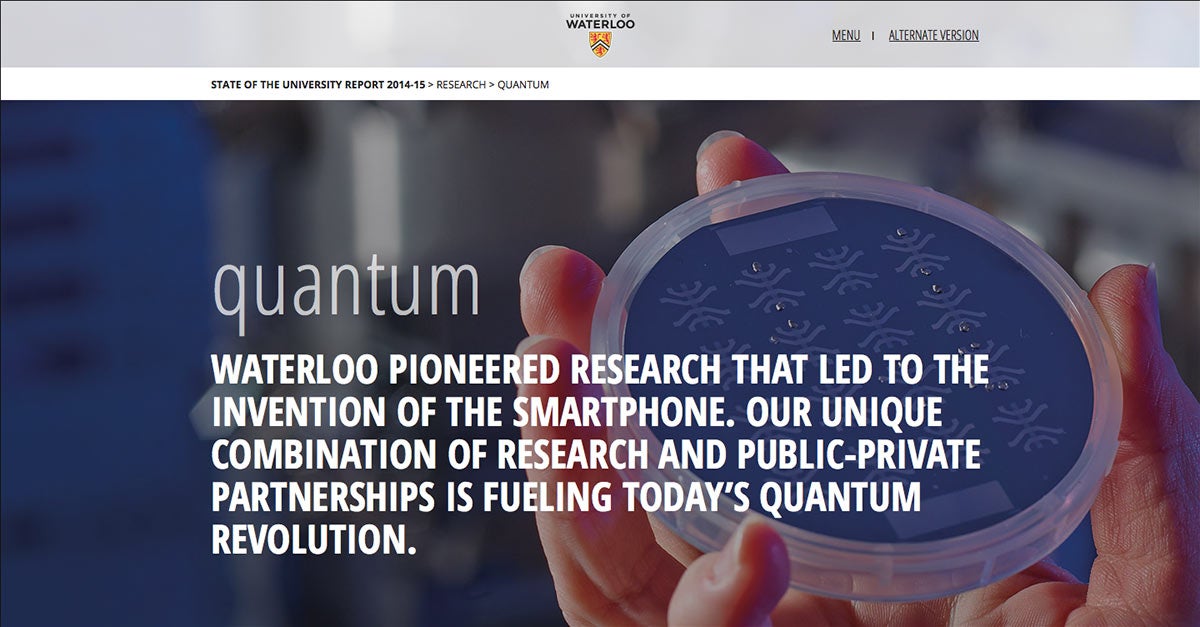

Waterloo pioneered research that led to the invention of the smartphone. Our unique combination of research and public-private partnerships is fueling today’s quantum revolution.
Devices that harness quantum properties will drive the next great technological revolution — the quantum age.
A magnetic tunnel junction fabricated at the Institute for Quantum Computing (IQC)
There are suites of problems that today’s best computers have difficulty solving. By harnessing the counterintuitive behaviour of atoms and molecules, quantum computers will provide a whole new way to address some of the world’s most complex computing tasks. Canada Excellence Research Chair David Cory, a professor of chemistry in the Faculty of Science and IQC Deputy Director of Research, and his team are using a new hybrid approach to build a 100-qubit quantum computer in the next few years.
Prototype 100-qubit quantum processor.
Nitrogen vacancy centres in diamond lie at the heart of the new MRI technology.
Magnetic resonance imaging (MRI) has revolutionized how we diagnose disease, but it can only image material as small as the width of a hair. Distinguished Research Chair in Condensed Matter in the Faculty of Science and Institute for Quantum Computing (IQC) Associate Amir Yacoby is developing a new MRI technique, using defects in diamond as quantum processors, that is thousands of times more precise — almost down to the size of an atom.
Professor William Tutte, a founding member of Waterloo’s Faculty of Mathematics and the world-leading combinatorics program, has recently been acknowledged for his instrumental role in deciphering the Lorenz cipher while at Bletchley Park during the Second World War. Pictured: Reconstruction of British Tunny machine based on Tutte’s mathematical insights, The National Museum of Computing, Bletchley Park. Photo: The National Museum of Computing www.tnmoc.org
Hackers are attacking computer systems, and breaking them, every hour of every day. Quantum key distribution (QKD) offers unbreakable cryptography, but it’s limited to a few hundred kilometres. Thomas Jennewein, a professor of physics in the Faculty of Science, and his team at IQC is taking QKD to satellites for a global quantum network that will catch hackers in the act.
Microsatellites will eventually allow global quantum communication. Image: ComDev International, IQC partner